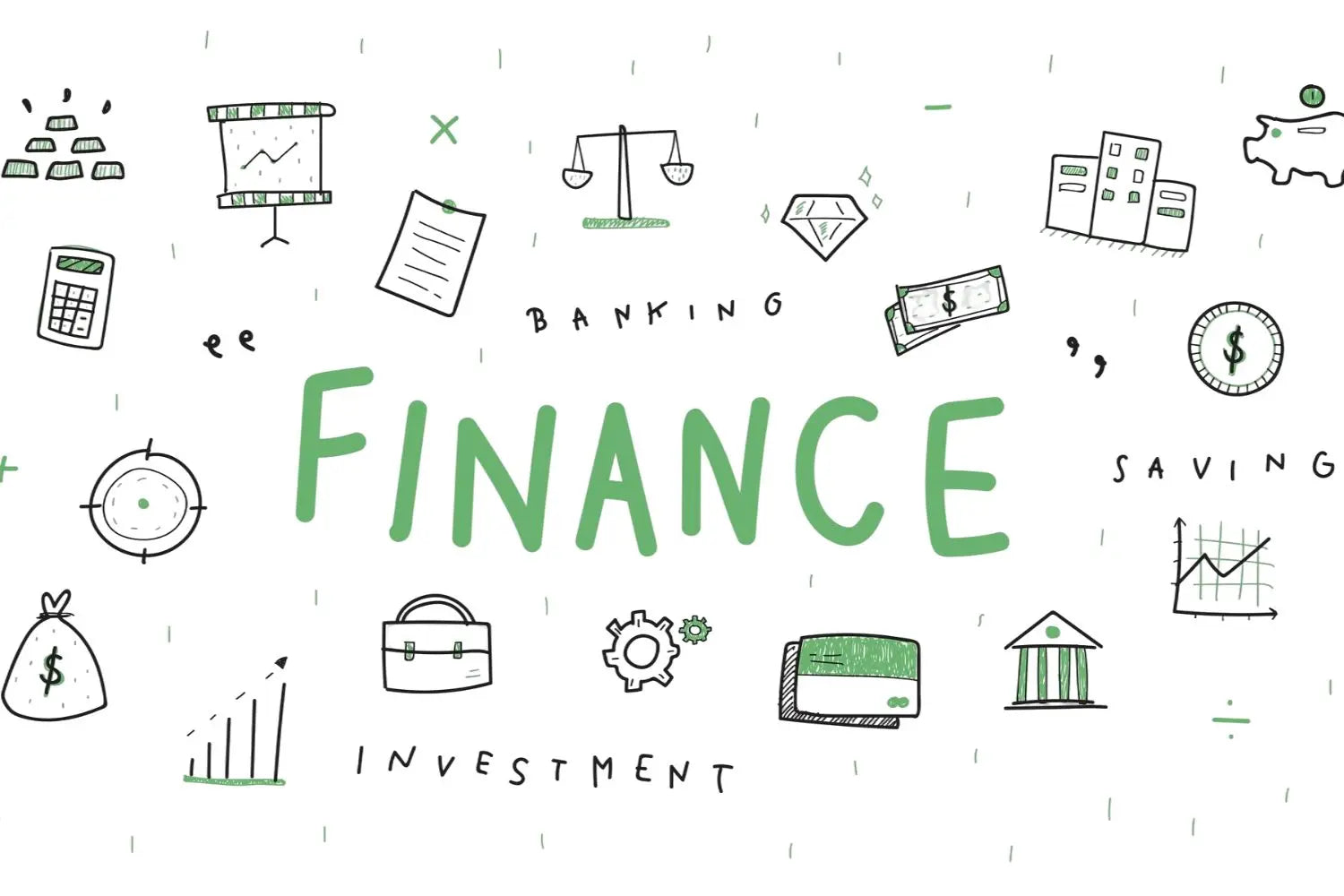From stock markets to fintech, finance is a world full of opportunities. But to succeed, you need the right foundation. The best universities for finance combine strong academics, hands-on experience, and access to global networks. Let’s discover the best finance universities in the world that are helping students turn their finance dreams into reality.
Why Study Finance at a Top University?

Studying finance at a good finance university gives you much more than a degree. It builds your skills, connects you with the right people, and opens doors to global career opportunities. Here’s why it makes a big difference:
1. Worldwide Respect for Your Degree
A degree from places like Wharton, Oxford, or NUS is valued across the world. Employers know these are among the best finance colleges in the world, producing top talent that stands out in competitive fields like banking, consulting, or private equity.
2. Better Careers & Internships
Top finance schools, often ranked among the best universities for finance in the world, have strong links with banks, consulting firms, and big companies. This means you get better chances at internships, campus placements, and high-paying jobs around the world.
3. Specialized Courses
These universities don’t just teach general finance. You can dive into areas like fintech, corporate finance, risk management, asset management, or financial engineering programs often offered at the best universities for masters in finance.
4. Learning from Experts
At leading finance universities, you’ll study under professors who not only teach but also shape financial policies and create new models used in the real world.
5. Strong Alumni Connections
Top schools have powerful alumni networks. Their graduates are already working in Wall Street firms, global banks, and leadership roles. Being part of this network gives you mentorship, guidance, and career opportunities.
Factors to Consider Before Choosing a Finance University
Picking the right finance university isn’t only about ranking, it’s about what suits your career dreams, budget, and future plans. Here are the main things to think about before applying:
1. Level of Study
- Undergraduate (Bachelors in Finance/Accounting/Business): Good for beginners, focusing on basic financial concepts.
- Master’s in Finance (MFin/MSc): Best if you want specialized knowledge in areas like investment banking, corporate finance, or risk management. For students aiming for the best universities for MSc finance, Europe and the UK are popular choices.
- MBA with Finance Specialization: Perfect for professionals with some work experience aiming for leadership roles in banking, consulting, or private equity.
- PhD/Research: Great if you want to go into teaching, policymaking, or advanced financial research.
2. Location & Financial Hubs
Studying in cities like New York, London, Hong Kong, or Singapore puts you close to the world’s biggest financial hubs. This means better chances for internships and jobs. Also, keep in mind the local economy and visa rules, as they impact your work opportunities after graduation.
3. Rankings & Reputation
Look beyond just the overall university rank. Check subject-specific rankings (like QS Finance or THE Business & Economics), faculty reputation, research work, and what employers think of the university.
4. Tuition Fees & Scholarships
Finance degrees can be costly, especially in the US and UK. Compare tuition fees and living costs. Also, explore scholarships like Chevening, Commonwealth, or university funding options such as the LSE Graduate Support Scheme or Oxford Clarendon Fund.
5. Placements & ROI
Check how well the university supports placements, what the average starting salaries are, and how quickly graduates recover their tuition costs through jobs (Return on Investment).
6. Alumni Network & Industry Links
A strong alumni network means you’ll have connections in top firms like Wall Street banks, the Big Four, and global consulting companies. Universities with good industry ties also offer better internships and real-world exposure.
Best Universities for Finance 2025

Finance is a highly competitive field, and the world’s top universities for finance stand out because of their excellent teaching, research, job placements, and global reputation. Here are some of the best institutions for finance in 2025, across different study levels:
Undergraduate Finance Programs
- University of Pennsylvania (Wharton): Ranked #1 for finance, Wharton offers a deep curriculum and direct access to Wall Street recruiters.
- New York University (Stern): Located in New York City, Stern connects students with investment banks, hedge funds, and fintech companies.
- Cornell University: Offers a strong finance program with Ivy League prestige and top placements in corporate finance and consulting.
- University of Michigan (Ross): Famous for its hands-on learning style and excellent career services, especially in banking and consulting.
- Georgetown University (McDonough): Focuses on global business and finance, with strong links to Washington DC and international markets.
Master’s in Finance
- University of Oxford (Saïd): Its MSc in Financial Economics combines theory and practice, ranked #1 among the best universities for finance masters.
- HEC Paris: Known for its Master in International Finance, one of Europe’s best, with strong links to leading banks.
- MIT Sloan: A highly quantitative program that prepares students for careers in risk management, asset management, and fintech.
- London School of Economics (LSE): Famous for research-based finance teaching and a strong reputation in economics and policy.
- ESSEC Business School: A top French school offering strong corporate finance training and global career opportunities.
MBA Finance Specialisations
- University of Michigan (Ross): Offers a strong MBA track in finance with excellent job placements in banking and consulting.
- Cornell University (Johnson): Ivy League MBA with a solid finance curriculum and hands-on Wall Street immersion programs.
- Northwestern University (Kellogg): A flexible MBA with strengths in finance, leadership, and global strategy.
- University of Oxford (Saïd): Blends global leadership education with finance electives for worldwide career impact.
- INSEAD: One of the most international MBAs, offering finance exposure across Europe, Asia, and the Middle East.
Finance Research Leaders
- University of Chicago: Birthplace of modern finance theory, home to Nobel Prize winners and groundbreaking research.
- University of California, Berkeley: Strong in finance research, focusing on data, markets, and policy.
- Harvard University: A global leader in finance and economics research with faculty shaping business and policy worldwide.
- Stanford University: Connects finance with technology and entrepreneurship, located in Silicon Valley.
- University of Oxford: Europe’s top research hub for finance, combining tradition with cutting-edge work in markets and regulation.
Regional Leaders in Finance
Global rankings show the best unis for finance overall, but every region also has its own leaders that shine in finance education, research, and career opportunities.
1. United States
- Wharton (University of Pennsylvania): #1 for undergraduate finance and a consistent leader in MBA programs.
- University of Chicago & UC Berkeley: Known for groundbreaking finance research and shaping global policies.
- MIT Sloan & Stanford: Famous for quantitative finance, innovation, and fintech-focused programs.
2. United Kingdom & Europe
- University of Oxford (Saïd): Ranked #1 for Master’s in Finance, with a strong research base and alumni network.
- London School of Economics (LSE): A powerhouse in finance, economics, and policy-making.
- HEC Paris & ESSEC: Among Europe’s best business schools, offering world-class master’s programs in finance.
- University of Cambridge (Judge): Strong in research and leadership-focused finance training.
3. Asia
- National University of Singapore (NUS): Asia’s #1 for finance, with global exposure and strong fintech connections.
- University of Hong Kong (HKU): Known for finance research and close links to Asian markets.
- Tsinghua & Peking University (China): Fast-growing finance schools with strong regional influence.
- INSEAD (Singapore campus): Offers an international MBA with finance specialization, bridging Eastern and Western markets.
Tuition Fees & Scholarships (Indicative)

The cost of studying finance depends a lot on the program level and the country. Here’s a simple overview of what you can expect:
Undergraduate Finance Programs
- United States (Wharton, NYU, Michigan Ross): $50,000-70,000 per year.
- United Kingdom (LSE, Oxford, Cambridge): £25,000-35,000 per year.
- Asia (NUS, HKU): $20,000-35,000 per year.
Master’s in Finance (MFin/MSc)
- Oxford Saïd MSc Financial Economics: approx. £47,000 for the full program.
- HEC Paris Master in International Finance: approx. €40,000-45,000.
- MIT Sloan Master of Finance: approx. $80,000-85,000.
- LSE MSc Finance: approx. £35,000-37,000.
- ESSEC MSc Finance: approx. €35,000.
MBA in Finance
- Top US MBAs (Wharton, Kellogg, Michigan Ross): $80,000-120,000 total.
- UK & Europe (Oxford Saïd, INSEAD, LBS): £70,000-100,000.
- Asia (INSEAD Singapore, NUS MBA): $50,000-75,000.
PhD / Research in Finance
At most top universities (like Chicago, Stanford, LSE), PhD students don’t pay tuition. Instead, they often receive stipends to support their studies.
Scholarships & Funding Options
1. Global Scholarships:
- Chevening Scholarship (UK): Covers tuition plus living costs.
- Commonwealth Scholarships: For students from Commonwealth countries.
2. University-Specific Scholarships:
- Oxford Clarendon Fund - full or partial funding.
- LSE Graduate Support Scheme.
- HEC Paris Foundation Scholarships.
3. Need-Based & Merit-Based Aid:
Many US schools (like Wharton, MIT, Ross) offer financial aid depending on academic performance or financial need.
Career Opportunities After Studying Finance
A finance degree can open doors to some of the best-paying and most exciting careers across industries. Graduates from top universities are especially in demand with global employers.
Popular Career Paths
- Investment Banking: Work on mergers & acquisitions, raising capital, and financial advisory with top firms like Goldman Sachs, JP Morgan, or Morgan Stanley.
- Asset & Wealth Management: Manage investments and portfolios for individuals, companies, or big institutions.
- Corporate Finance: Help companies manage budgets, raise funds, and grow their businesses.
- Private Equity & Venture Capital: Invest in and grow companies, often leading to high returns and leadership opportunities.
- Risk Management & Compliance: Focus on financial risk, regulations, and ensuring companies follow the rules.
- Fintech & Digital Finance: Join startups and tech firms working on payments, blockchain, AI, or digital banking.
- Consulting: Strategy and finance consulting with firms like McKinsey, BCG, and Deloitte.
- Academia & Research: Teach, publish research, and shape financial or economic policies.
Average Salaries (Indicative)
- Undergraduate Finance Graduates (US/UK): $60,000-90,000 at entry level.
- Master’s in Finance: $80,000-120,000, often higher in investment banking.
- MBA Finance Graduates: $120,000-180,000+, depending on role and location.
- PhD/Research Careers: $70,000-100,000 in universities; much higher in industry or consulting.
Global Demand
Finance professionals are needed worldwide whether on Wall Street in the US, in London’s financial district, or in fast-growing hubs like Singapore, Hong Kong, and Dubai.
How to Choose the Right Finance University?

With so many options worldwide, choosing the right finance university can feel confusing. The trick is to match your career goals with what the university offers. Here are the main things to keep in mind:
1. Match the Degree to Your Career Goals
- Undergraduate: Great if you’re starting out and want a solid base in finance, economics, and business.
- Master’s in Finance (MFin/MSc): Best if you want specialized skills for careers in investment banking, corporate finance, or financial engineering.
- MBA (Finance Specialisation): Ideal for professionals with work experience who want to move into leadership or management roles.
- PhD/Research: Choose this if you’re aiming for a career in teaching, policy-making, or advanced financial research.
2. Think About Location Advantages
Studying in global financial hubs like New York, London, Singapore, or Hong Kong gives you better access to internships and job markets. Also, consider visa rules, cost of living, and post-study work opportunities in that country.
3. Check Rankings & Reputation
Don’t just look at overall university rankings. Focus on subject-specific rankings (like QS, THE, or Research.com). Also, check what employers and alumni say, as this often matters more than general rankings.
4. Look at Tuition Fees & ROI
Always calculate ROI (Return on Investment). Compare the cost of tuition + living expenses with the average salaries graduates earn. Also, explore scholarships, fellowships, and financial aid to cut down costs.
5. Alumni & Networking
A strong alumni network can give you a big edge in landing jobs at top banks, consulting firms, or startups. Universities that have close ties with companies also provide better internship and placement opportunities.
Conclusion
Studying finance at one of the best universities for finance in the world gives you the right start for a global career in banking, consulting, or fintech. Whether it’s Wharton, Oxford, or NUS, these universities provide the skills, connections, and opportunities you need to succeed in today’s fast-moving world of finance.












